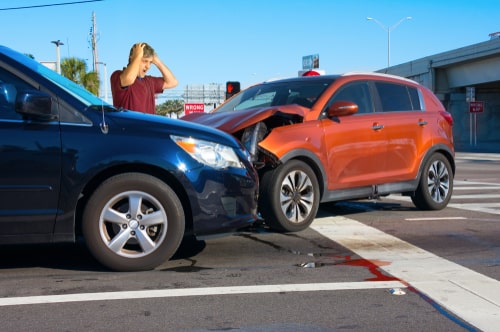When you are injured, you might be eligible to pursue a tort or personal injury claim against the person liable for your losses. This makes it possible for you to collect financial compensation for injuries and other damages. This seems relatively straightforward so what is vicarious liability and when does it come into play?
What are the different types of vicarious liability?
Generally speaking, you file a lawsuit against the party responsible for your injuries. In certain situations, however, you might also want to file a lawsuit against the business or person who was in charge of the offender. This can make it much easier to secure compensation if the party who caused you harm has no insurance, no assets or money, or if you are unable to determine exactly who within the company is liable.
The rules of vicarious liability make it possible for injured victims to pursue a case against other potential respondents. If you were injured in a negligence-based accident, the North Carolina personal injury attorneys at Shapiro, Washburn & Sharp can help you seek compensation for your damages. You should not be forced to face financial hardship because of someone else’s negligence. Call us today to schedule a free consultation.
What Is Vicarious Liability?

Imputed liability, also known as vicarious liability, is a legal theory that holds a business or person accountable for any negligent behaviors committed by their employees or by others. Usually, the theory applies to whoever is in charge of the person who caused the victim’s injuries.
For instance, a business, also known as the principal, is in charge of its workers. So, if a worker, also known as an agent, injures someone while they are working, the rules of vicarious liability can apply to hold the business responsible.
Vicarious liability provides victims with a wider array of possible respondents in a personal injury case. Under most circumstances, a plaintiff will pursue a case against the individual directly responsible for their injuries as well as any others who may be vicariously liable for the damages they incurred.
Types of Vicarious Liability
Vicarious liability could apply in any scenario where a business or person has authority over the actions of another or where one person is acting on behalf of another.
The two most common examples of vicarious liability are:
Employer-Employee
An employer could be vicariously liable for the negligent actions of their worker if:
- The worker was on the clock when the incident took place
- The worker caused injuries while doing the job they were hired to do
- The employer benefited in some way from the task the worker was performing when the injury occurred
If a doctor working in a hospital injures a patient by giving them the incorrect dose of medication during their scheduled shift, this is an obvious example of a scenario where the employer might be vicariously liable.
Parent-Child
In some instances, a parent may be held liable for the injurious actions of their child. In North Carolina, a parent can be held responsible for their child’s motor vehicle accident pursuant to the Family Purpose Doctrine. Under this doctrine, a parent can be accountable any time their child is liable for an accident if the teen was running a family-related errand or on other family-related business.
Do You Have Questions About Vicarious Liability?
If you have questions regarding vicarious liability or any other personal injury matter, you speak with an experienced North Carolina personal injury lawyer from Shapiro, Washburn & Sharp. Call (833) 997-1774 to schedule your free consultation with our legal team today.
